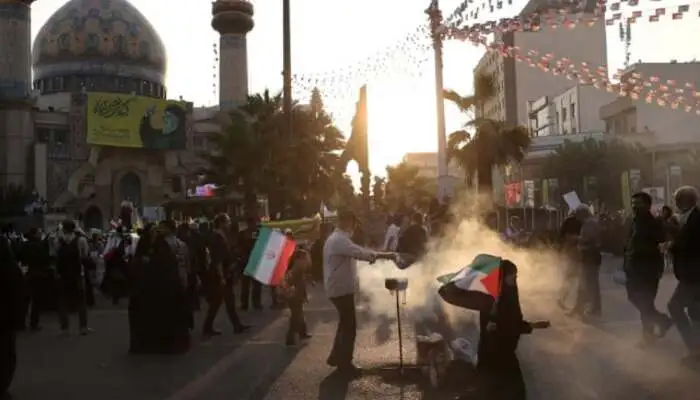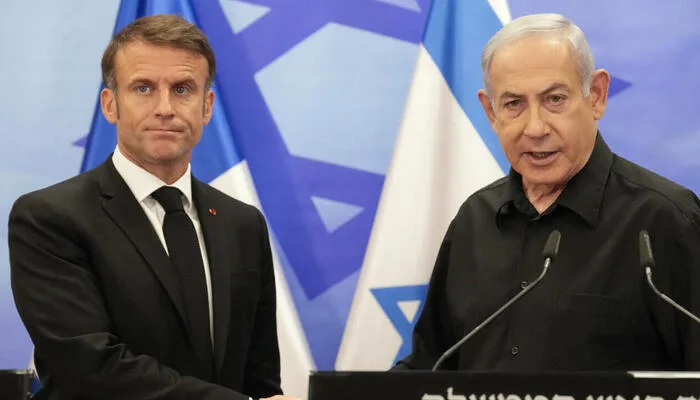
Tehran has firmly warned Gulf Arab states not to allow their airspace or military bases to be used for attacks on Iran. A senior Iranian official said that such actions would provoke a swift and strong response from Tehran. He stressed the importance of regional neutrality, especially as tensions with Israel rise.
This warning comes as Iranian Foreign Minister Abbas Araqchi visits Saudi Arabia, Qatar, and other Gulf nations. The purpose of the visit is to discuss regional security. Iran’s message calls for unity against Israel and warns that any collaboration, including airspace use, will be seen as hostile. This diplomatic push highlights Tehran’s effort to gather regional support and block alliances with Israel.
Rising Tensions with Israel
This situation follows an Iranian missile attack last week, which has raised concerns about Israeli retaliation. Recently, Israel has been attacking Hezbollah and Iranian positions in Lebanon and Syria. These strikes increase the possibility of direct conflict between Israel and Iran. Ongoing military actions have further escalated the already volatile situation in the region.
Read: Palestinian Activist Majed al-Zeer Condemns US Sanctions
US Influence and Concerns
As tensions escalate, US President Joe Biden is expected to speak with Israeli Prime Minister Benjamin Netanyahu about possible military actions against Iran. Washington is keen to influence Israel’s response, aiming to prevent a broader regional conflict. Biden has previously cautioned against attacks on Iran’s nuclear sites or oil facilities, warning that such actions could spike global oil prices.
Oil Production Concerns
Despite growing tensions, discussions between Iran and Gulf states have not yet focused on oil production. However, there are concerns that Israel could target Iranian oil facilities in retaliation. The Organization of Petroleum Exporting Countries (OPEC), led by Saudi Arabia, holds significant spare capacity to offset any loss in Iranian oil supply. Tehran has warned that any intervention by countries supporting Israel could make their own interests in the region targets.
Regional Relations and Neutrality
While relations between Saudi Arabia and Iran have improved in recent years, regional tensions remain high. The 2019 attack on Saudi oil facilities, which disrupted 5% of the global oil supply, is a stark reminder of the volatility in the region. Though Iran denied involvement in that attack, it was widely blamed. A Western diplomat in the Gulf reported that during recent talks in Qatar, Iran emphasized the importance of Gulf states maintaining neutrality. Tehran views this neutrality as the “bare minimum” expectation.
The presence of US military bases in Gulf states, including Bahrain, Kuwait, Qatar, Saudi Arabia, and the UAE, adds complexity to the situation. Iran is closely monitoring these bases and how they might be used in a potential conflict. Any involvement of these facilities could provoke a harsh Iranian response.
Hezbollah-Israel Conflict Intensifies
Meanwhile, tensions on Israel’s northern border have intensified. Hezbollah and Israeli forces continue to exchange fire, with casualties reported on both sides. Israel has bombed Hezbollah strongholds in Lebanon, and Israeli Prime Minister Netanyahu has warned of a “long war,” drawing parallels to the ongoing conflict in Gaza.
As President Biden prepares for talks with Netanyahu, the focus will be on preventing the conflict from escalating into a full-scale regional war. Biden has expressed reservations about attacking Iran’s critical infrastructure, hoping to avoid a broader conflict that could have far-reaching consequences. The outcome of these discussions could be pivotal in shaping the future course of this increasingly dangerous situation.
Follow us on Google News, Instagram, YouTube, Facebook,Whats App, and TikTok for latest updates











